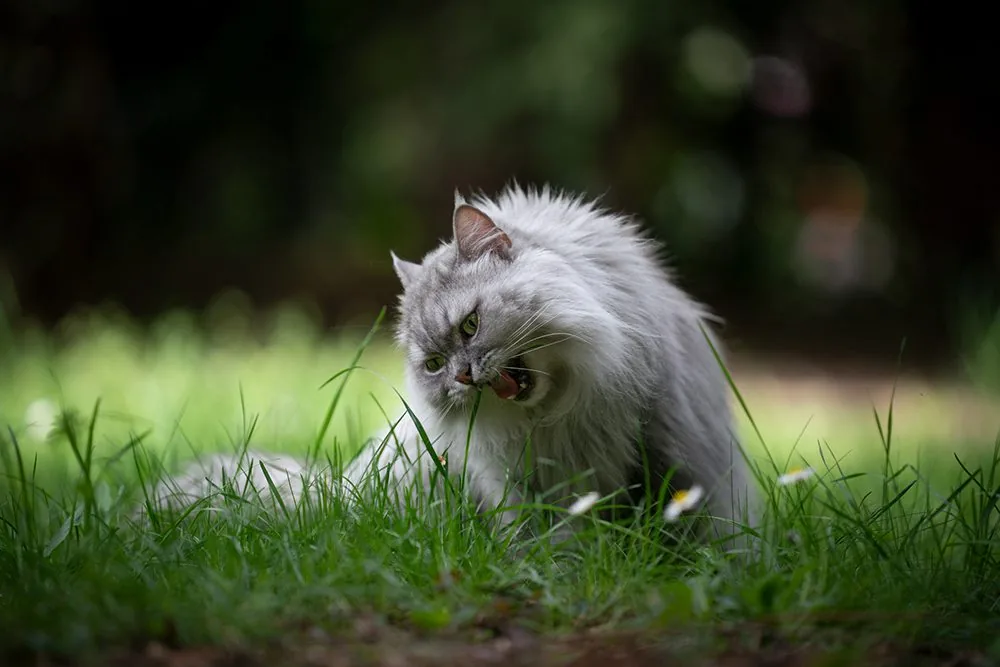Cat Hairballs: Why They Happen and How to Handle Them
Is your beloved feline friend frequently coughing up hairballs? You may be wondering what causes this somewhat unpleasant behavior and how it impacts your cat’s overall health. This informative guide will help you understand why cat hairballs happen, how to handle them, and when it’s time to seek professional veterinary assistance from trusted experts like us at Warrick Veterinary Clinic.

Understanding the Science Behind Cat Hairballs
Why Do Cats Get Hairballs?
Cats are renowned for their immaculate grooming habits. When cats groom, they use their tongue to clean their fur, unintentionally swallowing some loose hair in the process. While most of this hair travels through the digestive tract and gets expelled, some may form a ball in the stomach, known as a hairball or trichobezoar.
Hairballs are more common in long-haired breeds, such as Maine Coons and Persians, and cats who groom themselves or other cats excessively.
The Impact of Hairballs on Your Cat’s Health
While hairballs are common and usually not a cause for concern, frequent or large hairballs can potentially cause digestive problems, such as obstructions and constipation. Symptoms of a problematic hairball include vomiting, lack of appetite, weight loss, and lethargy.
Tips to Handle and Prevent Cat Hairballs
Home Remedies for Cat Hairballs
Several methods can help you manage your cat’s hairball issues at home. Regular grooming can significantly reduce the amount of loose hair your cat ingests. Brush your cat’s fur daily, especially if they have long hair.
Dietary changes can also help. Some cat food brands offer specialized formulas designed to control hairballs by improving skin health and digestion. In addition, introducing fiber into your cat’s diet can promote better digestion and assist in passing hairballs more comfortably.
When Should You Consult a Vet about Cat Hairballs?
If your cat shows signs of distress when coughing up a hairball, or if they exhibit symptoms of a blockage, such as ongoing vomiting, it’s crucial to seek veterinary advice immediately.
Additionally, routine check-ups can help prevent severe complications related to hairballs. Regular vet visits allow for early detection and treatment of potential issues, ensuring your feline friend stays in tip-top shape.
How Warrick Veterinary Clinic Can Help with Cat Hairballs
At Warrick Veterinary Clinic, we understand how much you care about your pet’s health. We offer comprehensive veterinary services in Boonville and Newburgh, IN, specializing in preventative care, diagnostics, and treatments for issues such as hairballs.
If you’re concerned about your cat’s hairballs or want to discuss preventive strategies, don’t hesitate to reach out to us. Our team of expert veterinarians is here to help. You can call us at (812) 897-4855, or visit our website at https://warrickvet.com/ to make an appointment online.
Remember, it’s our mission to ensure that your feline friend enjoys a happy, healthy, and hairball-free life. Trust the experts at Warrick Veterinary Clinic – your local source for quality pet care.
With this guide, you now understand why cat hairballs happen, how to handle them, and when to seek professional help. For more pet care tips, continue exploring our blog or get in touch with our friendly team at Warrick Veterinary Clinic. We’re always here to help you and your furry friends.
